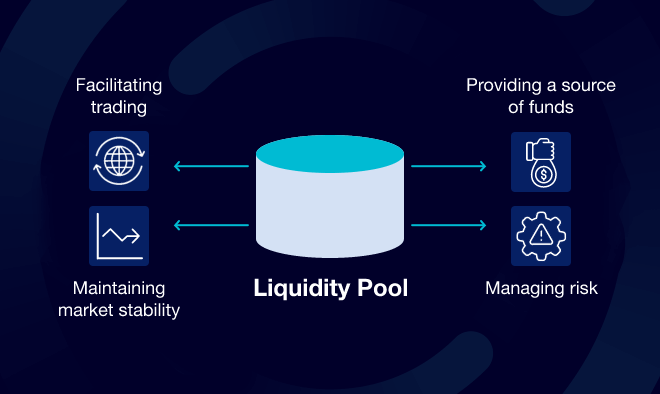What Is a Crypto Liquidity Pool? Why Are They So Important to DeFi?

A crypto liquidity pool is a pool of cryptocurrency funds that are held together by a smart contract on a decentralized blockchain network. These pools provide a way for users to trade assets without having to worry about the liquidity of the asset.
Liquidity pools are critical to decentralized finance (DeFi) because they provide a way for traders to buy and sell digital assets without the need for centralized intermediaries, like banks or traditional exchanges. DeFi is built on the Ethereum blockchain and relies on smart contracts to facilitate transactions. Liquidity pools, which are also built on Ethereum, help optimize that process.
Here’s how it works: when a user deposits assets into a liquidity pool, they receive a corresponding number of tokens representing their share of the pool. These tokens can then be traded, with the trading fees split among liquidity providers. This system creates a virtuous cycle of asset trading and liquidity, giving users the confidence they need to engage with DeFi protocols.
The importance of liquidity in cryptocurrency trading cannot be overstated. A lack of liquidity can lead to wide bid-ask spreads, making it difficult for traders to buy and sell assets at the prices they want. In contrast, a healthy liquidity pool enables traders to execute trades quickly, with minimal slippage and at fair market prices.
While liquidity pools are an important part of DeFi, they are not without risks. One major risk is the potential for “impermanent loss,” which occurs when the prices of two assets in a pool diverge. This can result in pool participants losing some of their funds when they withdraw their tokens. However, liquidity providers can mitigate this risk by carefully choosing which assets to add to their pool.
In conclusion, crypto liquidity pools are a critical component of DeFi, providing traders with a low-friction means of trading digital assets. While there are risks associated with these pools, smart management and careful selection of assets can help minimize those risks and enable users to take full advantage of the burgeoning DeFi ecosystem.






